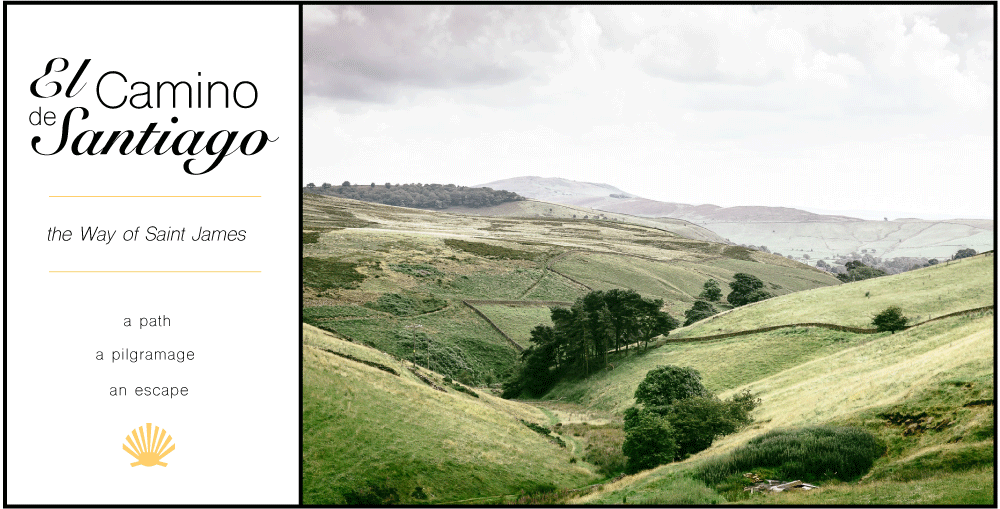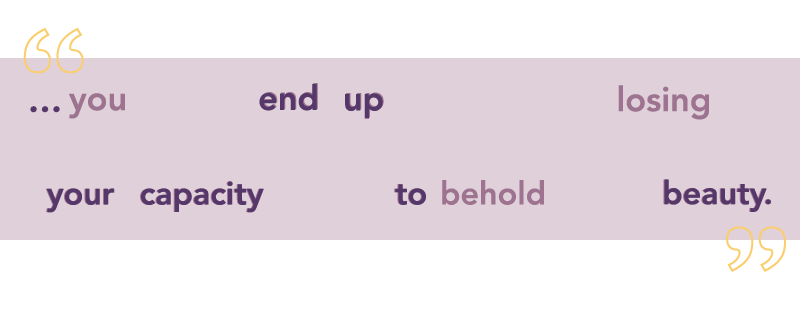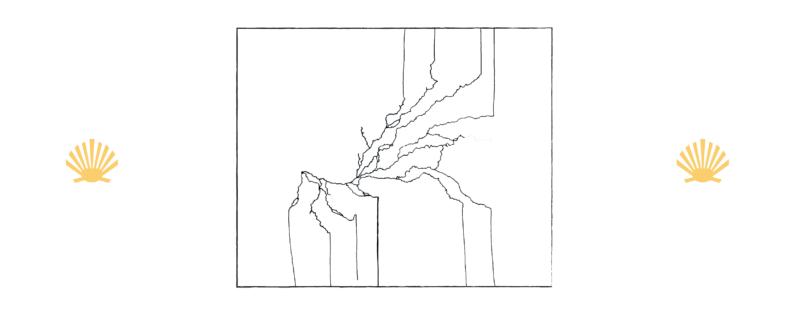Late one night on a hot summer five years ago, I found myself in a room packed floor to ceiling with bunk beds and sweating human bodies. This was no prison or hippie commune, mind you; I had just embarked on the Camino de Santiago — a grueling journey of 800 kilometers that starts from a small village in the south of France, crosses northern Spain, and ends a mere 90 kilometers from the Atlantic ocean in the town of Santiago de Compostela. In medieval times, the road to Santiago (as the name translates to) was a major pilgrimage route culminating at the town’s eponymous cathedral, which, legend has it, holds the remains of Saint James, one of Jesus’s apostles.
I am not religious, but neither were most of the thousands of people who would walk the Camino that summer. Unlike the ragged, world-weary, indulgence-seeking travelers of old, modern pilgrims come here clad in high-tech mountain gear for reasons ranging from the lofty to the prosaic. Among the people I met at various points were: Catholics looking for divine communions; garden-variety spiritualists on the hunt for energy fields and epiphanies; hedge fund managers in the throes of midlife reckonings; recent graduates desperate to ward off adulthood for as long as they could; and a slew of curious, more practically motivated characters hoping for a soulmate, weight loss, and cheap thrills.
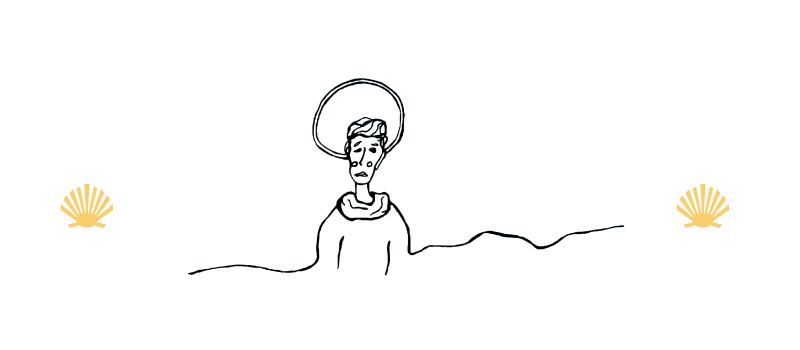
As for me, what brought me to the Camino that day in early June of 2012 was a sin I needed to atone for. At 21, I had a laughable history of actual delinquency (if you don’t count a recent jaywalking fine I’d conveniently “forgot” to pay or a number of ill-conceived attempts I’d made as a kid to get my younger sister disavowed from the family), yet I was convinced that what I’d done was odious nonetheless, perhaps even irredeemable. True, no one was coming after me, few even knew about it, and those who did know, the ones who had suffered its consequences, saw it as an offshoot of my unnatural ambition. But I knew: Somewhere I had gone horribly wrong. And I doubted anything could fix it.
It was shortly after my college graduation. I’d come out of academia inculcated with ideas that might have made for an easy summa cum laude, but that, it was beginning to dawn on me, would not survive contact with the real world, which I was now hopelessly stuck in. I had spent the previous four years under the spell of science — acing abstract math, devouring economics — with an outcome that resembled a Greek tragedy: every bid at the right answer, every painstaking effort to avoid the undesirable leading inexorably back to it.
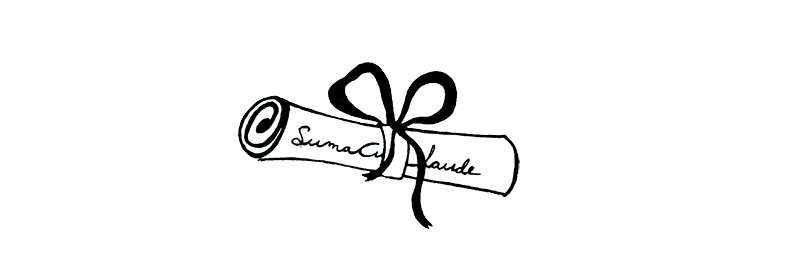
Not that I was running from fate as would a Greek hero. But still, my lot was just as inevitable: confronting the hard questions of being alive. Science, with its beguiling premise that things make sense, seemed to me both an answer and an escape from answering. I relished the notion of a world governed by natural laws, not one buffeted about by sheer randomness. I took solace in the idea that the giant, utter mess of existence had an inherent logic to it: could, in fact, be broken down, studied, distilled, and contained in a bunch of elegant equations. The promise that there was something to be had — an answer, a capital-T Truth, a meaning — meant that all the helplessness of being a child and the strangeness of being a teen and the expectations of becoming a woman would eventually amount to something. When an English professor asked the class once to think about our deepest fears, I had no trouble coming up with a ranking:
1. Meaninglessness
2. Myself
3. Public speaking
Science quelled my existential angst with a mantra I clutched to rabidly. It went more or less like this: Anything that can be measured can be controlled; anything that can’t be measured doesn’t exist. It was a tantalizing concept that the world ticked with the soothing precision of a clockwork mechanism, and if I could figure out the underlying calculus, I could figure out anything — from parametrizing hyperboloids to life itself.
It’s here that things took a wrong turn. My newfound love of logic running into my old (and very desperate) need for certainty, I decided to take science out of the classroom and bring it to bear on my day-to-day life. In this, I drew inspiration from a number of fields but mostly from economics. Its formulas and curves and diagrams put me in a state of awe of their sheer power at marrying mathematical precision and practical reality. Contrary to its reputation, economics — at least its academic rendition — wasn’t (just) about prices and interest rates. It was instead an enlightened endeavor in allocating limited resources most efficiently, a way of making decisions — from how to buy groceries to how to run a country — based on reason rather than sentiment and speculation.
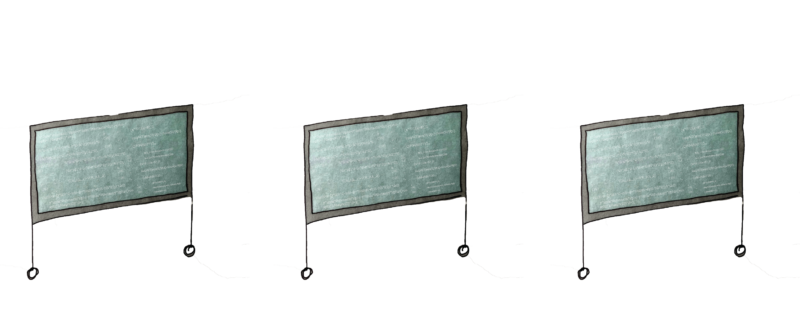
This, to me, was precisely what I needed. Emotion, after all, hadn’t served me well. (Back then, I could say this with a straight face, the flimsy empirical evidence of my 21 years on earth notwithstanding.) I always felt too strongly, loved too easily, dreamed too impossibly, and thought too deeply — inclinations that had only got me down rabbit holes and into cul-de-sacs and against rock bottoms. Economics, on the other hand, stripped things down to a very simple, very sensible question of maximizing a limited resource: my time. How to spend my time in the most optimal way — now that was a problem I could solve without plumbing the depths of my psyche and dealing with the ensuing emotional hemorrhage.
And so from the second semester of my freshman year, I turned into a model Homo economicus — a creature of cold rationality that draws decision trees and weighs the costs and benefits of every action and calculates the marginal utility of every hour spent doing one thing rather than another. This meant that nearly anything I derived pure pleasure from was now deemed an “inefficient” use of my “time resource.” Holing up with a book at the end of a day was out of the question. For a long time, I drifted off to sleep to the mammoth tomes of Macroeconomics I or II balanced on my sternum, their hard edges boring marks of crimson pink into my bony flesh.
Trips to the movies, once giddy adventures, turned into such guilt-ridden affairs that at one point I stopped going altogether. The opportunity cost was too high: in the two hours it would take for the plot to unravel, I could have got through Orwell’s 1984 or a whole chapter on line integrals. But the final blow was to the tea party — part monthly ritual, part improvised therapy session that my friends and I concocted in our freshman year. We kept the name even though what eventually transpired had none of the implied civility of a tea party and the occasion often featured vodka instead of tea. I remember many blissful Friday evenings, us flumped on some fading blue couch in a distant corner of the dorm, counting woes, comparing miseries. It always lifted my spirits, knowing that the others had it just as bad as I did — or worse. Suffering was glue: It made each one of us belong to the squad. But I stopped going. Long chats into the night simply didn’t factor into my new mental calculus. For optimization purposes, I told myself, I had to stick to eight hours of sleep, undertaken ideally before midnight, when the marginal utility of each subsequent hour supposedly begins its steep decline.
No, I wasn’t happy. Try to live like that — no hour wasted, no joule of energy unchanneled into some or other productive pursuit — and you end up losing your capacity to behold beauty. Not just to behold but also to bear it. I am reminded of an American tourist I once heard of who drove high up the mountains and the clean air so overpowered his lungs, clotted by big-city soot, it threw him into a violent coughing fit. As he choked and rasped with pain, one arm clutched at his throat while the other desperately grasped for the car’s exhaust pipe. I don’t know if he really did that, but the image is seared into memory: the man sucking on the pipe, inhaling fumes to keep himself alive, to keep clean air from killing him. When I heard this story as a kid, I rolled my eyes at these Americans and their spoiled American ways. But I see now how one’s whole being can begin to reject that which must be essential to life — air or, in my case, emotion and its vulnerability.
For me back then, happiness was not the point. Control was. And certainty. My chief motivation was to avoid the pain and the disappointment of unmet expectations, my ambition fueled not by desire to achieve but desperation not to fail. Fail what? I could never say precisely if you asked me. Failure, in my mind, was anything that would blow my cover, crack me open and put in front of me the questions I knew were always there, that I wanted desperately to forget. Who am I? What am I doing? Where am I going? What is this about?
I did forget these questions, for a while at least, thanks to the insulation from reality that my academic life so readily afforded. Science helped contrive a structure, construct a meaning, signpost an experience, and edit out the unexplainable bits. But once outside the halls of academia, this structure collapsed. The entire theoretic scaffolding that had held up my delusions of control crumbled, fast. No sooner had I shed my graduation gown than a million mundanities that I was ill-equipped to handle had to be handled.
Such as looking for a job. I harbored some vague notion of what that job would be — something significant, something that matters — but there were no such jobs around that I could find. In my reality-distorting way, I saw myself as a kind of Catcher in the Rye character, only instead of children I’d be catching countries in distress. From my perch at the World Bank. I’d travel to places on the brink of poverty (or, more likely, in the thick of it) and pull them out of imminent collapse, a stack of economic papers in hand. It took the straight talk of several good and patient people to disabuse me of my Holden-esque vision. To let it sink that things don’t work that way in the real world. That, for one, there’s always politics to muddy the spotless sensibility of economics.
There was also a father who had sacrificed his own ambitions for a family and a good name, and who expected the same of his daughter, me. Our conversations, until then few and far in between, grew tense and urgent. When he talked about “job” and “family” and “house” and “prestige” — to him, the stuff of a life not wasted — the words got trapped in the air between us. They hung on heavy in the wake of another argument and lingered long afterwards and against their unimpeachable rectitude, my own aspirations looked perversely small and selfish.
I had no theory on hand to help me there. No equation I could solve for x, for “optimal route in life” or “doing well while feeling fulfilled while making Father proud.” More troubling, though, was the nagging sense that down the bone I was a bad person. I watched as my few good friends left off to families and new things and watched, too, as the hallways in the dorms emptied out, people I’d seen but not really known walking past, lugging suitcases, saying goodbyes, their faces flashing in and out and away into the ether of the real world. And as I watched all this, I felt a sense of deserved abandonment. Did I, the economist, really think that invulnerability would come free of charge? That by embracing natural laws I could somehow transcend human laws or skip altogether the lawlessness of being a person in the world?
In hindsight, I didn’t go on the Camino to find myself but to punish myself. That’s partly the reason why I went into it utterly unprepared (and also because I had no money). I took no guidebook (the route markers better be good), no hiking boots (my sneakers better hold up), and no rain gear (it better not rain or I’d be stranded in some godforsaken field, miles from civilization or a tree). I would have even left my phone behind if it weren’t for the parents, who were told I was going on a one-month summer MBA camp in Barcelona. (Every few days they’d call and I’d be sweating up a hill and then they’d ask about things and I’d give them my ready-made spiel: Everything’s good, Mom, we are studying Walmart’s expansion strategy into Southeast Asia and I’m just about to duck into class and really must go now, loveyoubye.)
Most of the time I just walked, and walked, and walked, in silence. This wasn’t always easy with so many other people around: people you pass by and people who pass you by, road etiquette demanding that you look up and greet them with a “buen camino” (literally “good path” or “have a safe trip”). I tried to wake up early and walk fast to avoid the conversations that here tend to skip over the small talk and veer too deep too soon. I’d plod on in shorts and a T-shirt in the morning frost and the blistering afternoon sun, in the frequent drizzle and the occasional storm, for 30 to 40 kilometers of often barren land, my feet soggy from Vaseline and cramped inside two layers of woolen socks.
I remember this one village where we were summoned to evening mass. There was a beautiful old monastery dead in its center. There were bells ringing and a choir singing. As the other pilgrims flocked inside for mass, I dithered on the stone steps outside. I couldn’t bring myself to go in, where I did not feel I belonged. In my diary that night, I wrote sarcastically about all the churchiness and holiness one encounters on the road and how I just wanted to be left alone, to “dance with my demons.”
One sweltering afternoon about halfway on the Camino, I arrived in a nondescript village called Molinaseca. At its far end were two small albergues (hostels), and as I approached with the dozen or so other pilgrims, it was clear where everybody would be setting up camp for the night. New and shiny, made from light polished wood, the first albergue stood in stark contrast to the second one — a dingy building whose owner might as well have jumped straight out of a horror movie.
Disheveled hair, wild eyes, one missing leg, the unmistakable smell of spirits on him, the ominous screeching noises of his cast — everything spelled trouble. And yet as my fellow travelers filed inside the new albergue, I felt strangely drawn to that other place. Every one of my instincts shouted danger, every shred of common sense left by doting parents told me to stay away, but a strange compulsion overrode my better judgement. I stayed. The hospitalero/bogey man made me wait outside until his official opening time at one o’clock. I sat down on my backpack and fixed my eyes on the anorexic dog by my feet while the man played checkers with his pal, mumbling indistinctly under his breath. At one, he let me in. Apparently, I was the only guest, although there were backpacks dropped on the dirty floor. I wondered what had happened to their owners. The whole place was dark, with the musty tang of a ghost house. The light in the bathroom didn’t work. The stairs creaked and I swallowed heavily as the man, leaning in the doorframe, pointed upstairs.
Later, outside, he sat me down at the flimsy table and he told me his life story — a story of love and a happy marriage, the accident that left him a cripple in his mid-20s, the ensuing treachery of the wife, the heartbreak, the denial, the anger at God, the pilgrimage to Santiago, once, twice, 13 times, until the demons had settled and he stayed in Molinaseca to shepherd other lunatics tangled in their own dramas. The man’s name was Elisande — which, he reckoned, made us namesakes (people call me Ellie) and kindred spirits of sorts. I barely uttered a word the whole time he spoke, and then his story ended and he stood up to bring some olive oil he’d made himself. As he made for the outhouse in the back, he looked at me and said, “You are a good person, Ellie.” •
All images created by Emily Anderson.
